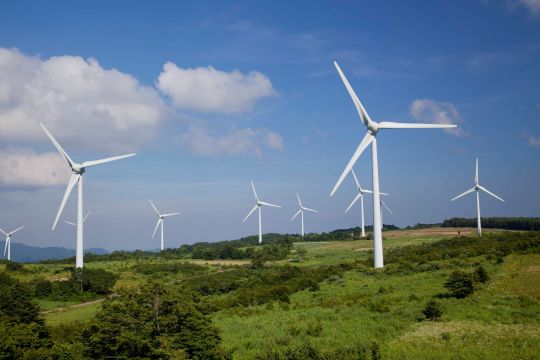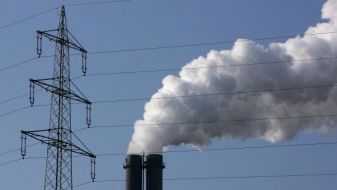The operator of Ireland's electricity transmission grid has unveiled plans for the country to have at least 70 per cent renewables on the electricity grid by 2030, in what it says will be a "radical transformation" of power.
Coinciding with the Cop26 United Nations climate change summit in Glasgow, EirGrid and Environment Minister Eamon Ryan revealed the Shaping Our Electricity Future plan.
As the Irish Examiner reports, EirGrid said the plan is the result of a "14-week consultation across all sectors of society and two years of research by industry experts and tens of millions of technical simulations".
The plan came about after they were asked by the Government to "transform the electricity system in anticipation of a future without coal, oil, peat and ultimately one with net zero emissions".
Specifically, it must redevelop the grid to manage the vast majority of Ireland’s electricity coming from renewable sources by 2030, Eirgrid said.
There were 492 submissions from members of the public and 80 industry submissions.
In developing the plan, EirGrid said it considered how much demand for electricity will grow, the future mix of electricity generation, and where it will be located.
Offshore wind
It also considered what needs to happen on the grid to connect supply and demand, and what should happen in the market as it operates close to 100 per cent.
Demand will grow between 30 per cent and 50 per cent due to industry growth, electrification of transport meaning electric vehicles, and the electrification of heat in homes and offices, it deduced.
The next tranche of renewable energy will be dominated by offshore wind in the Irish Sea, EirGrid said.
“We will still have more onshore wind, we welcome the arrival of solar generation starting next year and we suggest that consumers and householders can play a part through solar generation on the roofs of their home,” a briefing on the plan said.
However, it warned that gas will be needed “as a backstop for when the output from wind and solar is low”, but insisted that was not contradictory to the strategy.
“That does not conflict with our transformation plan, gas will ultimately be displaced by hydrogen or some other form of non-carbon generating fuel,” it said.







